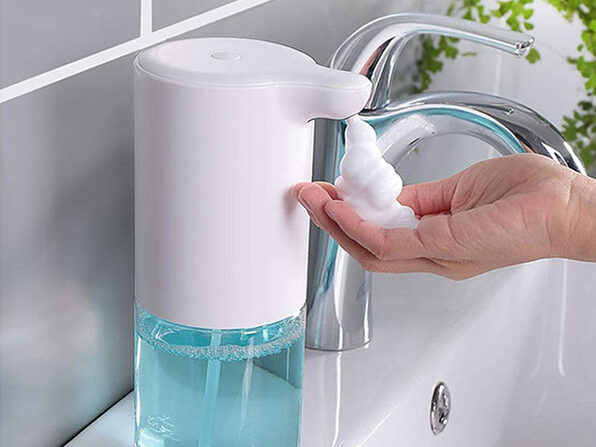A study released by the US Occupational Safety and Health Institute revealed nursing to be the 27th most stressful profession in America.
These findings come as no surprise given the fact that nurses deal with patients experiencing trauma on a daily basis and are subjected to work hours that fall well outside of the typical 8 hours a day, 5 days a week norm.
If you’re a nurse and suffer from work-related stress, it’s important that you find ways to cope. Failure to do so can lead to a number of physical and mental conditions that may prove fatal over the course of your life.
To help you on your journey to find inner peace, below, our team has compiled a list of ways to de-stress that are popular in the nursing community.
Table of Contents
Exercise
No matter what kind of stress you’re dealing with, exercise is an incredible way to feel better about it.
When you work out, your body releases endorphins which can improve your mood dramatically. Furthermore, the sense of accomplishment you’ll get from hitting the gym can make you feel better about yourself and where you’re at in life.
Many people who deal with anger as a bi-product of their stress find that exercise is one of the best ways to de-stress and simultaneously cut down on their aggression.
Seek Companionship
People who experience high levels of stress while working find a lot of solace in companionship.
Maybe you have a partner waiting for you when you get home. Maybe you have a pet. The important thing is to make sure that you’re not coming home to a lonely house at the end of a long day.
Believe us when we say that having something/someone to cuddle with makes for one of the most effective ways to de-stress.
Reduce The Amount of Caffeine You Drink
Caffeine might seem like a necessity while you’re working back to back overnight shifts or simultaneous morning/evening shifts, but it’s important to know that caffeine can wreak havoc on your stress levels.
Various components of caffeine heighten people’s anxiety. This heightened state can make relatively small issues feel much bigger which can cause undue stress during and after work.
Sensitivity to caffeine varies so to best avoid a stress episode, be diligent in understanding where your intake limits are.
Chew Gum During Your Breaks
While chewing gum on the job is a no-no for nurses, doing so in the break room to bust stress is generally acceptable.
Gum chewing promotes blood flow to your brain. It can consequently improve your sense of well being.
People also love gum for the fact that it’s an extraneous stimulus that can help take your mind off of whatever it is that’s bothering you.
Many people find gum chewing to be an excellent substitute for more destructive habits like smoking.
Always Have Something to Look Forward To
It can be hard to find effective ways to de-stress when you have nothing to look forward to besides more nursing shifts. That’s why it’s important to do your best to always have something positive just over the horizon.
Arrange for a brunch date with friends. Book a vacation. Order fun new scrubs from Blue Sky Scrubs or another designer company.
Anything constructive you can get in the works will do wonders when it comes to your ability to get out of bed during a particularly hard week.
Learn How to Say No
Not saying no can lead to horrendous work-life balance.
Managers will start scheduling you as if you have nothing going on in your life, co-workers will start pushing their shifts off on you, and you’ll lose control of your free time.
To avoid being taken advantage of and to stand up for your right to enjoy life outside of work, get comfortable with saying no.
Contrary to popular belief, declining things isn’t a sign of weakness. It’s a sign of someone who is strong in their understanding of where their proprieties should be at.
While you might get some blowback at first, eventually, your team will respect you for setting boundaries.
Practice Mindfulness
Mindfulness meditation helps practitioners focus on the present as opposed to all of the stressful things that are going on around them. Focusing your attention on “the now” can have a profound effect on helping bring peace to your mind.
You can join a mindfulness group in your local community or practice it on your own in as little as 5 minutes sessions.
UCLA offers excellent, free mindfulness audio workshops you can enjoy at any time.
Find Time For Deep Breathing
If you’re looking for a simple “ways to de-stress” solution, take a deep breath in for 10 sends, hold it for 5 seconds, and exhale for 15 seconds.
Repeat this process 3 times.
You’ll find that almost immediately you’ll feel level-headed.
Wrapping Up Ways to De-Stress That Nurses Leverage Daily to Stay Balanced
Whether you’re deep breathing or listening to guided meditations, there are plenty of ways to de-stress as a nurse that can help you stay balanced.
Our recommendation is to try putting into practice as many of our tips above as you can. If you do, you’ll start to notice your life trending in a more positive direction.
Once you have your stress under control, it’s time to double down your focus on other aspects of your life. If you want information on how to improve your relationships, your fashion and more, check out our newest content on “Women Like That” today!











